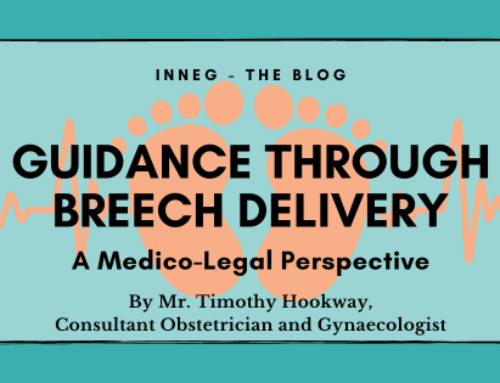Abdominal Angina (Mesenteric Ischaemia) –
A Commonly Missed Diagnosis
by Mr Ashish Gupta, Consultant General and Colorectal Surgeon
Recently within a short span of few months, I was involved in three cases of clinical negligence related to missed or delayed diagnosis of mesenteric ischaemia. All three came to serious harm, including death in one. When I was asked to write this short article revolving around a clinical negligence case, I couldn’t think of a more pertinent theme to share in my capacity as a General & Colorectal Surgeon.
What is Mesenteric ischaemia?
Mesenteric ischaemia or abdominal angina is a condition, which results from atherosclerotic disease in blood vessels supplying the small intestine. History of smoking is usually but not invariably associated with this problem. As a result of narrowed or blocked arteries, typically Superior Mesenteric Artery (SMA) or Coeliac Axis (CA), the patient gets pain in the central or upper abdomen, typically after meals, also called post-prandial pains. This condition slowly becomes chronic and can result in weight loss, mainly due to patients being frightened to eat! Patients often visit their GPs but unfortunately return back only being treated for acid reflux or IBS before their symptoms start to trouble them more frequently.
These pains or abdominal angina attacks, if undiagnosed and untreated can result in an event of non-salvageable catastrophic bowel ischaemia or bowel infarction. Morbidity and mortality in such events is high.
This article is about acute or chronic small bowel ischaemia rather than ischaemic colitis. This is different than acute ischaemic colitis affecting left sided large bowel, which remains a common presenting condition in the elderly, usually associated with atrial fibrillation and smoking. Diagnosis of ischaemic colitis is much easier and prognosis is reasonable.
A timely treatment, often with the help of interventional radiologists can save the catastrophe. Minimally invasive techniques of balloon angioplasty or stenting SMA or CA can restore blood supply to the gut, helping the patient almost immediately.
So, why is it common to miss a diagnosis of mesenteric ischaemia?
I recently took an opportunity to quiz few newly appointed Foundation year 1 doctors, having freshly passed medical school. None of them could include mesenteric ischaemia in the list of their differential diagnoses, when simply a history of central and upper chronic abdominal pains was given to them. But when I gave them the two key words – ‘post prandial pains’ and ‘smoking’, almost everyone gave the correct answer of ‘mesenteric ischaemia’. This strengthens my belief that one of the major reasons for clinicians to miss the correct diagnosis is to not take heed of these two key words when taking history from the patient. It would’ve been so easier if every patient suffering from mesenteric ischaemia would come and say, “Hello doctor, I have got postprandial abdominal pains, and I am a smoker”. Unfortunately the lack of suspicion for this condition amongst GPs and junior surgical trainees continues to remain. Cues from the history aren’t usually picked up. Patients often have had multiple visits to their GPs or Accident & Emergency department before they finally come with severe abdominal pains from small bowel infarction, which is usually not salvageable.
Moreover, the similarity of symptoms to other common conditions such as acid reflux disease, gallstones, pancreatitis, and IBS don’t make a clinician’s life any easier! By the time investigations are carried out to exclude the above, one can miss the boat. And often in addition, typical of a Swiss-Cheese-Model, the radiologists can miss to point out the incidental findings of SMA or CA thrombosis.
So, if the problem is not that common, and if it mimics other common conditions, then should it really be negligent to miss the diagnosis?
Here are some of the case scenarios.
- One of the three patients was admitted in the hospital and required morphine PCA (Patient Controlled Analgesia) for the whole weekend, but the clinicians failed to conduct a CT scan, and continued to treat the Claimant for acid peptic disease. Any abdominal pain needing hospitalization and a PCA should have prompt radiological imaging. This was of course thought to be substandard care.
- The other one had a similar story when the hospital clinicians failed to conduct a CT scan for three days despite severe pain requiring morphine. The Claimant was treated for gastroenteritis. This resulted in massive small bowel loss, resulting in life long intestinal failure and dependency on home parenteral nutrition.
- The third one had a CT scan for ongoing abdominal pains, but the radiologist failed to comment on the obvious narrowing of mesenteric arteries and chronic thrombus in them. The normal CT report confused the surgeons who couldn’t think of mesenteric ischaemia, as nothing was commented on the scans about SMA and CA thrombosis. Subsequently few months later the Claimant was readmitted in the hospital. Hospital clinicians again missed to refer to surgeons as the patient started to get better with intravenous rehydration and antibiotics. No scan was done. The patient returned within days with bowel infarction and died.
General Surgeons usually are the ones who initially suspect or diagnose acute or chronic mesenteric ischaemia. They will normally then seek opinion from vascular surgeons. Often an interventional radiologist is required to intervene.
In my day-to-day practice of admitting patients with acute abdominal pains, acute mesenteric ischaemia fortunately doesn’t remain a common cause of admission. Ischaemic colitis is quite common on the contrary. Clinical suspicion to diagnose mesenteric angina is vital and key to the timely diagnosis. Often GPs and hospital doctors are found to lack this vital clinical suspicion! This is unfortunate for the patients and can result in catastrophic loss of small bowel.
About the Author:
Mr Ashish Gupta, MBBS, MD, FRCS
Mr Gupta is a Consultant General and Colorectal Surgeon at Epsom-St Helier NHS Trust since 2014. He is the clinical lead for bowel cancer in his NHS Trust. Prior to this he obtained a fellowship from Basingstoke, a centre renowned for Colorectal Surgery and Peritoneal Malignancy.
Mr Gupta has been undertaking medico-legal work since 2016. His Claimant to Defendant ratio is 45:55. To instruct Mr Gupta, email your request to instruct@inneg.co.uk



